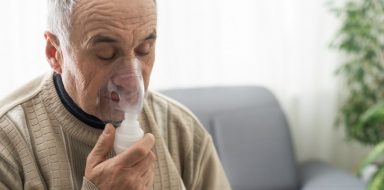Acne Treatment for Teens
When you meet someone new, first impressions seem like they can make or break the relationship, and whether you like it or not, the way you look has a big impact on the way people see you. At any age, acne is an issue that can negatively impact first impressions. Teenagers seem to pay extra attention to their appearance, as this is the time when people start dating. Here we will discuss acne treatment for teens.
Even though almost everyone will experience periods of acne at some point in their life, the condition can make anyone feel isolated, alone, frustrated and sad. It may not be possible to avoid and prevent every breakout but learning about acne and its treatment can put you in a position to limit its influence and keep your complexion clear.
Acne Basics
Acne is caused by a complicated interaction involving the skin, oil glands under the skin, hair follicles, bacteria and an oily substance produced by the oil glands called sebum. Sebum, dead skin, and hair clump together in the follicle and plug the area, which allows bacteria to thrive.
As bacteria grow, the area becomes red and swollen. A pimple begins to form when the components of the clump begin to break down and dissipate. Generally, acne is not a cause for much concern, though it can result in scarring. You may not consider one pimple to be a serious skin condition, but some people are greatly affected emotionally by the state of their skin.
Perhaps the most important thing to know about acne is how common it is. Although anyone can get acne, the condition is most common for teens and young adults, with about 80% of people between ages 11 and 30 having outbreaks at some point.
Acne Causes
You may be surprised to know that despite all the knowledge medical professionals have about acne, they are not entirely sure what actually causes it. Although they cannot pinpoint the issue, they believe several issues contribute to acne and acne outbreaks like:
- Changing hormone levels that accompany adolescence
- Taking certain medications
- Wearing makeup that contains oily or greasy ingredients
- Family history
Contrary to popular belief, it does not seem that diet has a significant impact on acne. This information dispels the myth that eating too much sugary candy or too many greasy potato chips will trigger an acne outbreak.
Experts may not be sure what causes acne in people, but they are sure about what makes outbreaks more severe and more frequent. Acne can become worse when people:
- Put pressure on areas of their skin with helmets, backpacks and tight collars
- Are exposed to certain environmental conditions like high humidity and air pollution
- Pick, scratch, squeeze, or scrape at their skin
- Experience high stress levels
- Work to overly scrub or clean their skin
Avoiding these situations and behaviors may not eliminate your acne, but it could make a significant difference in the quality of your skin. Especially if your outbreaks occur in specific locations on your face and body, your condition could be caused by a less obvious trigger.
There are many choices of birth control for teens. From pills, to patches and devices, find out which is right for your teenager here.
Acne Treatment Options
Changing Your Face Wash Routine
The first acne treatment option will work well for many people. They will have success with varying their skincare routines by:
- Using different types of soaps
- Washing their face at different times of the day
- Experimenting with facewashes
- Using preventative or damage control products that are available over-the-counter
Taking Medical Treatments
Over-the-counter acne treatments are available as washes, foams, pads, lotions and creams. They may contain ingredients like:
- Benzoyl peroxide
- Resorcinol
- Salicylic acid
- Sulfur
Choosing an acne product can feel intimidating, so consult with friends and family members who have found success with a product line. It is also important to consult with your doctor too. Be cautious, though. Just because a product worked for someone you know does not necessarily mean it will work for you as well.
If these products do not yield the outcomes you seek, it may be time to consult with a medical professional. Scheduling an appointment with your pediatrician, internist, general practitioner, or dermatologist could help you explore alternative treatment options.
A doctor may offer acne treatments that include active ingredients like:
- Antibiotics
- Higher doses of benzoyl peroxide
- Azelaic acid
- Dapsone
- Retinoids, an ingredient derived from vitamin A
Many of these options are available as creams, lotions, or oral medications.
Acne medications are usually safe and effective when used as prescribed, but people should always exercise caution, especially if they are using one particular vitamin A derivative called isotretinoin. Isotretinoin is found in popular acne medications like:
- Accutane
- Amnesteem
- Claravis
- Sotret
These products are effective in shrinking the oil glands, but it can lead to some serious side effects including the risk of birth defects in babies born to women who used the drug while pregnant. Other side effects of isotretinoin include:
- Unwanted mental health changes like depression and anxiety
- Dry skin
- Nosebleeds
- Itchiness
- Sensitivity to light
Surely acne is an undesirable condition that can affect your confidence and self-esteem, but always remember that acne is temporary. Avoid treatments that offer quick fixes to ensure your health and well-being no matter the condition of your skin.







